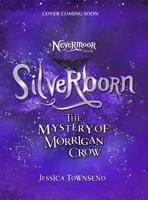Publisher's Synopsis
This historic book may have numerous typos and missing text. Purchasers can usually download a free scanned copy of the original book (without typos) from the publisher. Not indexed. Not illustrated. 1839 edition. Excerpt: ... lute authority with which man has been invested. The effects of cruelty to animals may be considered either as they regard the sufferers, or as they regard the aggressors. In the one case, we look to the actual pain and injury inflicted; in the other, to the moral degradation and the reflex effects upon the heart of man. And, as the effects of cruelty are twofold, so also are those of benevolence; for, J "Mercy is twice blessed; It blesseth him that gives, and him that takes." I, therefore, divide the motives to humanity, whether drawn from nature or revelation, into these two classes; first, external or objective; and, second, internal or subjective. 12. First, Of the external or the objective motives, drawn from considerations connected with the animals themselves, and the place which they occupy in the economy of the universe. Much has been written on the question as to the future condition of the brutes; and while a great deal of ingenious speculation has been foolishly thrown away upon a point which cannot be decided by argument, the motives to humanity are equally strong, whatever opinion may be held on the sub ject. If, as many wise and good men have supposed, they are destined not to perish at death, but to enjoy a state of immortality, we ought to be thereby all the more impressed with their importance in the economy of the universe, and to feel the responsibility of our relation to them the greater. Or, if we regard them merely as a passing part of the present system of things, a portion of the scenery in which it has pleased the Almighty that the great moral drama of this world should be acted, --then, in knowing that the death of their body is also the end of their existence, we have the strongest motives for regarding..."






















